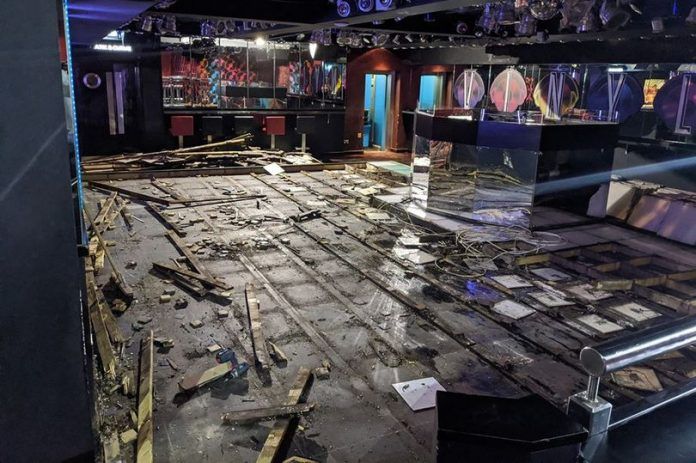With the current plight of the UK nightlife industry going largely unnoticed during the COVID-19 pandemic the recently rolled out first two rounds of the Culture Recovery Fund look to rebalance the books of many organisations.
Being massively behind the pace with large parts of Europe such as Germany, Spain, and France the UK has, at last, eased up the purse strings to support the creative industries but have they done enough given this move comes 8 months into the current pandemic and most dancefloors have been silent since March?
The first stage of this rollout took place on Monday, October 12th and the lifeline that many had expected to come did not materialise. During this initial section of funding, there was a large number of parties across the UK that benefitted from a much-needed cash injection, 1,385 to be precise, and the total of funds made available amounted to £ 257,407,622.
While each recipient is just as in need of reparations as the next, there seems to be a distinct lack of independent electronic music venues, promoters, and studios getting the nod, well below the industry expectations. In this particular trench of funding several entities have been awarded a range of sums which include Corsica Studios (£407,764), Ministry of Sound (£975,468), Mint Warehouse (£166,738), Resident Advisor (£750,000), Rough Trade (£138,599), Shindig Events (£100,000) and The Roundhouse Trust (£775,000) were among those successful.
During the next stage of funding organisations such as Boiler Room (£791,652), Cocoon in the Park (£100,000), Kaluki Worldwide (£50,000), Lock N Load Events (£249,791), Mint Festival (£100,000), World Headquarters (£71,294), NTS Live (£223,260) and Rye Wax (£181,380) all received funding. While it is clear that certain areas of the creative industries have been very well catered for such theatres, museums and orchestral groups the distinct lack of funding for independent venues, labels and promoters has not gone unnoticed.
This leaves venues such as Pickle Factory, Studio 338, fabric, Village Underground, Oval Space, Egg LDN, and Printworks (to name just a few in London) in a state of dismay why they have been overlooked, and moreover, they are looking to gain a sense of understanding as to why they have been deemed not financially viable considering their longstanding in the music community, their contribution to the UK’s rich cultural reputation and the income and taxes that they invariably kick into the UK’s economy. It is an obvious observation that not every organisation can benefit from these windfalls but there needs to be some sort of clarification on the criteria.
The full report of successful candidates can be downloaded from artscouncil.org.
To add to this, a further grant system has been set up by Arts Council England to aid DJs, artists, and other creative performers where they can apply for a grant of between £2,000 and £10,000. But again, with a complete uncertainty on when performers can return to their jobs, this seems to be a temporary measure that is completely missing the bigger picture and the evolution of the pandemic situation for the following months.
Moreover, if we consider that the above situation follows the poor handling of the pandemic and the utterly disgraceful campaign “Rethink. Reskill. Reboot” where several vital sectors of the UK economy were invited to retrain in different jobs in a not-so-subtle way, it is fair to understand why the recent grant allocation created such controversy. While the situation seems impossible at times this has only contributed to further lower the trust that key sectors of the UK economy have left in the current government and their ability during these struggling times.










![Premiere: A2 – Jorge Savoretti & Francisco Tettamanti – Orion [WTR002]](https://trommelmusic.com/wp-content/uploads/2026/02/WTR002-soundcloud-Whose-These-Records-324x235.jpg)
![Premiere: A2 – Anas M – Mission Possible [VDR001]](https://trommelmusic.com/wp-content/uploads/2026/02/vdr-001-label-design-02-100x70.png)

![Premiere: A2 – mrelss – Season of Reason [AMAM044]](https://trommelmusic.com/wp-content/uploads/2026/02/label_side_A-Alessio-Mereu-100x70.jpg)
![Premiere: 2 – Santon – Only a Test (Alain de Saracho Remix) [SDR012]](https://trommelmusic.com/wp-content/uploads/2026/02/Santon-Only-a-Test-EP-Artwork-Alain-de-Saracho-100x70.png)
![Free Download: Zombies in Miami – What Ya Doing [TFD128]](https://trommelmusic.com/wp-content/uploads/2026/02/photo_2026-02-12-10.38.24-e1770892750337-100x70.jpeg)
![Premiere: 1 – DAT (Italy) – Not My Plan [SENS001]](https://trommelmusic.com/wp-content/uploads/2026/02/IMG_9750-Sensazione-Stupenda-100x70.png)
![Premiere: B1 – Kolhida – Break And Escape (Cezar Lazãr Remix) [TTM003]](https://trommelmusic.com/wp-content/uploads/2026/02/IMG_2883-Aleksandr-Gocheleyshvili-100x70.png)
![Premiere: A1 – JJ Fortune – Design [LNS10]](https://trommelmusic.com/wp-content/uploads/2026/02/1188556-100x70.jpg)
![Premiere: A1 – Alexander Skancke – Saga Of Subvision [QRK015]](https://trommelmusic.com/wp-content/uploads/2026/02/photo_2026-02-03_17-31-24-100x70.jpg)